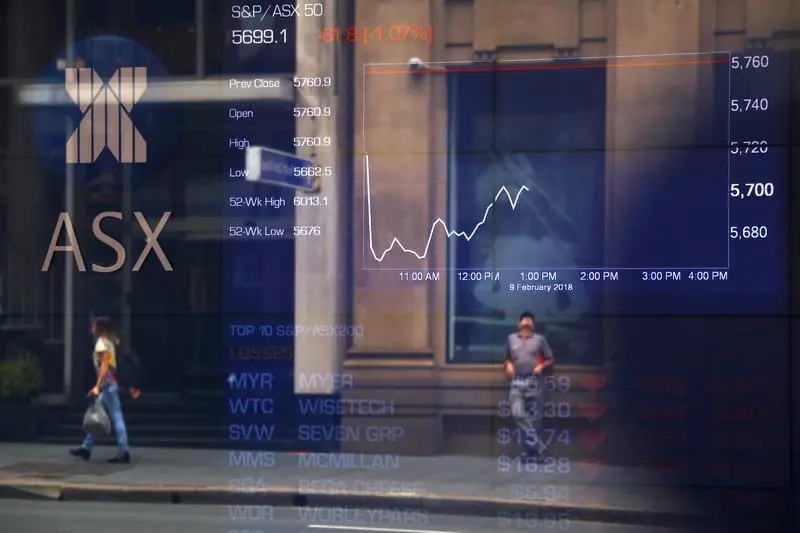PHOTO
Australian shares fell on Wednesday to hit their lowest in two months after jitters from China's manufacturing data and local inflation print dampened investor sentiment, ahead of the crucial vote decision on the U.S. debt ceiling.
The S&P/ASX 200 index toppled 1.6% to close the trade at 7091.3 points, hitting its lowest level since March 30. The benchmark has fallen 3% this month.
The worries over the U.S. debt ceiling influenced global investor sentiments, with uncertainty prevailing about whether Congress will approve the bipartisan deal after a handful of hard-right Republican lawmakers said they would oppose it.
On the other hand, data showed Chinese manufacturing activity contracted faster than expected this month on weakening demand.
"The momentum generated by China's reopening narrative seems to have reached its tail-end," said Hebe Chen, market analyst at IG Markets.
"The wishful prospect that the post-Covid recovery could help to fix the underlying engines of China’s economic prosperity appears overly optimistic as presently, China lacks the fresh catalyst to initiate a rebound."
Consequently, the future appears highly uncertain for Australian companies heavily reliant on commodities, with a clouded outlook ahead, Chen added.
Australian consumer prices also rose by more than expected in April, driven by a jump in automotive fuel, suggesting sticky inflation would likely keep pressure on the central bank.
The unpleasant rebound has fuelled speculation about another rate hike by the Reserve Bank of Australia in June, said Chen.
On the local bourse, miners fell 2.3% with sector giants BHP group, Rio Tinto and Fortescue Metals closing in red territory.
Financials also dragged the index by falling 2%. All the "big four" banks ended the trade in negative territory.
Energy stocks further took away 2.5% from the benchmark.
New Zealand's benchmark S&P/NZX 50 index fell 0.6% to finish the session at 11,813.0 points. (Reporting by Nausheen Thusoo in Bengaluru; Editing by Janane Venkatraman )





















